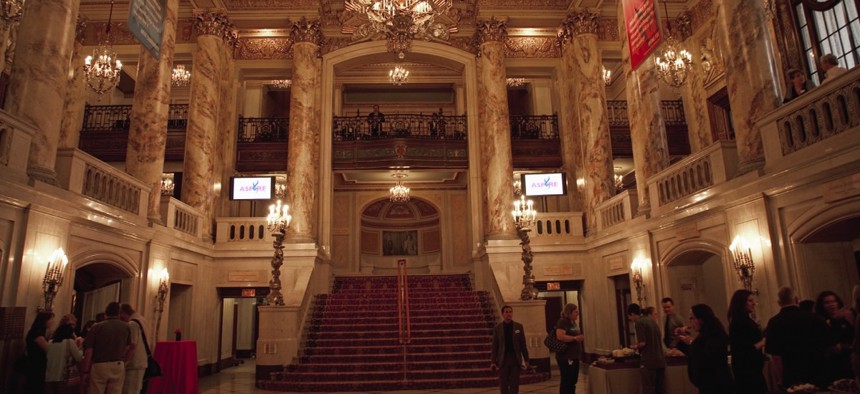Boston Looks Into Whether It Has Adequate Performing Arts Spaces

Citi Performing Arts Center in Boston.
The city has rolled-out an online survey to gather feedback on the topic from key cultural and institutional stakeholders.
To take stock of the performing arts and rehearsal spaces in the city, Boston has launched an online survey that will run until later this month, according to Mayor Martin J. Walsh’s office.
The survey is designed to assess Boston’s current inventory of performing arts spaces, demand for the spaces among arts organizations, and how the facilities align with artists’ needs. It comes as questions have swirled since last fall around the future of two high-profile venues in the city—the Colonial Theatre, owned by Emerson College, and the Boston University Theatre, which is the long time home of the Huntington Theatre Company.
Additionally, the Boston Lyric Opera decided last October not to renew its lease with the Citi Performing Arts Center Shubert Theatre, its main stage for nearly two decades.
“It is important to have a clear understanding of the assets that exist within the city so we can quantify the needs,” Walsh said in a statement.
Catherine Peterson is the executive director of ArtsBoston, a nonprofit organization that supports arts and culture in the city.
Asked what she thought the survey would find, Peterson said: “No one will be surprised that the need for rehearsal space is critical for a large part of the arts community.”
She added: “There is a very thriving performing arts scene that could be all the more vibrant, and contributing more to the city, by having the proper venue infrastructure.”
The city survey is formally called the Performing Arts Facilities Assessment. It is meant to inform a comprehensive report on the challenges and opportunities facing Boston’s performing arts community. The survey will remain online through March 28.
Emerson College announced in early March that it would not follow through with previously floated plans to convert the roughly 115-year-old Colonial Theatre into a space that could be used as both a student dining center, and for performances.
Going forward, the exact nature of the programming at the theater remains uncertain. But college president Lee Pelton told the Boston Globe in early March: “It will remain a theater and venue for the performing arts. That’s the bottom line.”
Boston University, meanwhile, announced last October that it would dissolve its partnership with the Huntington Theatre Company, and put the BU Theatre up for sale. The university has said that any deal for the 890-seat facility would have to include a guarantee from the buyer that the theater company could continue to use the space through June 30, 2017.
Concerns over performing arts space extend beyond the city’s higher-profile venues and theater companies, according to Peterson.
“It’s not just the folks that have been in the headlines,” she said. The city needs spaces, Peterson noted, not only for marquee arts organizations, but also “for the fringe and small companies that are really the R&D of our arts economy.”
Benefits from investment in these sorts of facilities are not necessarily confined to arts organizations. “It affects neighborhood vitality,” Peterson said.
She pointed to other upsides as well. “It attracts the kind of workforce we need in order to make sure we have folks for the knowledge economy that’s so important to the region right now. Our competitive advantage to Silicon Valley is the amazing cultural life we can offer to people.”
Bill Lucia is a Reporter for Government Executive’s Route Fifty.
NEXT STORY: There Are Plenty of ‘Dumb Ways to Die’ in Denver






